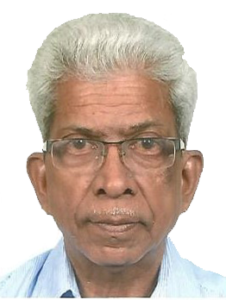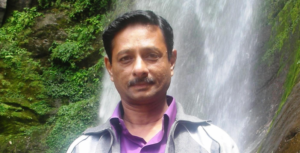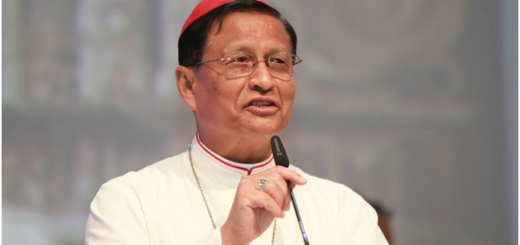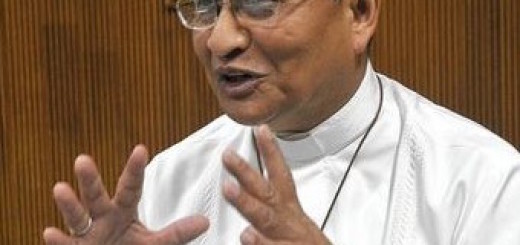THE LOCKDOWN MESS – OUR BABUS FORGOT THEIR SCHOOL MATH?
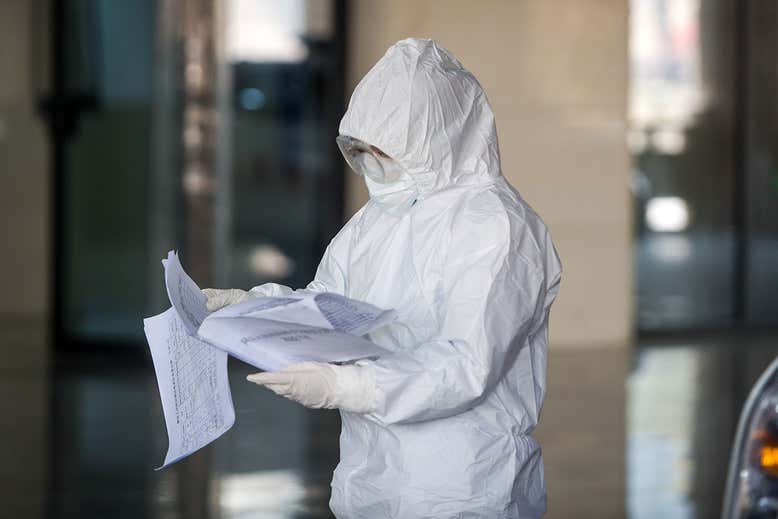
Joseph Mani
Note: Mr Joseph Mani, the author of BEYONDS GODS & SCRIPTURES, is a person with a scientific temperament backed by his sound credentials (B.Sc. & M. Sc. in Physics and MBA from IIM Ahmedabad). Having also done his studies in Philosophy, Religion, Literature and Linguistics, he always gives a different rationality to this articles/books. In this article he establishes brilliantly, the mathematical connection with decision-making of our leaders regarding the on-going nationwise 66+ day-old-Lockdown. Readers will find this article very enlightening. In connection, readers may read an article Coronavirus: How maths is helping to answer crucial covid-19 questions which appeared in NewScientist dated 13 February 2020. https://www.newscientist.com/article/2233386-coronavirus-how-maths-is-helping-to-answer-crucial-covid-19-questions/#ixzz6NtvEYe62 Isaac Gomes, Associate Editor, Church Citizens' Voice.
This article may provide some diversion from the lockdown blues.
The Commutative Law
From our school math we know that 3 + 5 = 5 + 3 or (A x B) = (B x A). It doesn’t matter whether we take A first and B second or the other way. This is the Commutative Law. While this is true in arithmetic, this is not true in some other branches of mathematics. For example, if A and B are matrices, then (A x B) = – (B x A)
In life too some things are not commutative. You have to buy groceries paying cash, but you don’t have cash at home. You need to go to the bank to withdraw cash. Buying groceries (action G) and withdrawing cash (action C) are not commutative. You have to necessarily do C first and then G, not the reverse. The physicist Murray Gell-Mann wanted to do his Ph. D from Princeton, his dream place. He was too poor to do his studies without a scholarship. Princeton offered him admission but did not offer a scholarship. Harvard offered admission, but dilly dallied on the scholarship. The only place that gave him admission with a scholarship was MIT. Gell-Mann thought that MIT, while good for physics, was a grubby old place and having to take admission there was an insult to his intelligence. So he decided to commit suicide rather than study at MIT. Then he realized that taking admission at MIT (action M) and committing suicide (action S) were not commutative. If he joined MIT and found studying there intolerable, he could always commit suicide afterwards, but not the other way around. So he joined MIT and went on to win the Nobel Prize.
Our bureaucrats who made the lockdown rules, overworked as they were, forgot this fact. They first shut down all means of transport with four hours notice and then thought of the millions of migrant workers who desperately wanted to go home creating the heart rending sights of small children dragging their feet for hundreds of kilometers in scorching heat and human beings packed into a cement mixture. They forgot that they should have first made arrangements to take the guest workers home and then banned trains and buses. The mess was further compounded when the babus, after some forty five days, allowed manufacturing and construction with in situ workers to start and then sent the migrant workers home without whom factories and building sites will remain effectively shut.
Anchoring
If we combine math and psychology we get the cognitive fallacy called anchoring to which most of us are liable to fall victims unless we become aware of it and guard ourselves against it. An example: The publishers of The Economist wanted to increase their subscription. New readers were offered three ways to subscribe: Web Only for $ 59, Print Only for $ 125, Print & Web for $ 125.
Yes, Print & Web subscription cost the same as Print Only. Why should anyone opt for Print Only when he can get Print and Web for the same price? That is exactly what happened. The results were: Web Only – 16 %, Print Only – 0 %, Print & Web – 84 %
Why then should the option of Print Only be there at all when we know that no one in his right mind will opt for it? Presumably the publishers of The Economist, like its readers, were not fools. They gave the Print Only option though they knew no one would opt for it because the result of an earlier ad without that option was: Web Only – 68 %, Print & Web – 32 % (Print is where most of the money is)
Once people got anchored to Print Only @ 125 dollars, anything additional at the same price is a bonus. So people thought that by opting for Print & Web they are only paying for Print and getting Web copy free, saving $ 59. Without that anchoring, the choice was markedly different. Every time we fall for “Mega Discount Sales” and “Buy One, Get One Free”, the sellers are using this trick.
Political leaders sometimes use this to hoodwink the public. They make ridiculous proposals and, when there is a hue and cry, they roll back. And people will say “Look, what a great man our leader is; he is willing to admit his mistake and agree to a compromise.”
Donald Trump used to employ this ruse as a business man. In a business negotiation he would start by asking for the moon knowing the other side would never agree to it. Later during the negotiation he would come down. Since he had got his rivals anchored to the moon, they would think he has made a compromise and felt obliged to reciprocate and agree to Trump’s “watered-down” demand which is what he wanted anyway. He mentions this in his 1987 book The Art of the Deal.
Trump did the same thing during the pandemic. He came out with the atrocious suggestion of inoculating people by injecting bleaching solution directly into their bodies. Later he withdrew the proposal. See, our President is a reasonable man.
The Associative Law
We know that (3 + 6) + (9 + 2) + (11 + 16) = (3 + 9) + (11 + 6) + (16 + 2). It doesn’t matter how we group the numbers. The Associative Law.
But this is not always true. Take the infinite series,
(1 – 1) + (1 – 1) + (1 – 1) + (1 – 1) + ———– The sum of this infinite series is 0 because each term is 0
But suppose we group the terms differently, like,
1 + (-1 + 1) + (-1 + 1) + (-1 + 1) + ————– The sum is 1
So the same numbers can add up to 0 or 1 depending on how we group them. The Associative Law doesn’t hold good here.
The priest-mathematician Guido Grandi was happy with this double solution because he said it proved the Biblical was right – that God created something (the universe, represented by 1) out of nothing (vacuum, represented by 0). Then the mathematician in him kicked in and he showed that the sum of the series was ½. His proof: Represent the sum of the series by S. By grouping the terms in still another way, it can be shown that S = 1 – S; therefore, 2 S = 1 and hence S = ½. (The debate over this conundrum raged for about 150 years until it was solved with the concepts of partial sums and convergence)
What all this shows is that different groupings can throw up different situations and can be quite confusing. Our bureaucrats forgot this. They came out with this meaningless distinction between “essential” and “non-essential” goods and allowed only shops selling essential goods to be opened. In most neighbourhood kirana shops essentials and non-essentials sit side by side – the same shop sells ata, toothpaste and cigarettes; batteries, dal packets and pencils may be grouped on the same shelf. Which part to open and which part to close? How is the policeman checking incoming trucks to know which part of the truck carries essential goods and which part non-essential goods as per some babu’s classification? So he, like any good government servant, stopped all trucks resulting in hundreds of trucks piling up on highways while people in the city desperately waited for vegetables and bread. Different groupings blur the distinction between essential shops and non-essential shops.
And to confound it, how do you decide what is essential? Is a laptop an essential good? To a cook it may not be, but to a WFH software engineer it is. Is food and water essential? To most of us mortals yes, but to a Yogi may not be because he claims he can live on air and meditation as attested by the followers of the just-deceased breatharian Chunriwala Mataji who is said to have lived for 70 years without food and water. Should liquor shops and churches be allowed to open? To a tippler and a devotee each is essential because a peg and a prayer can elevate the mind above the lockdown misery, at least temporarily.
No doubt most of our bureaucrats are intelligent, hard working and sincere folks. But they could do with a refresher course in “essential” math.

